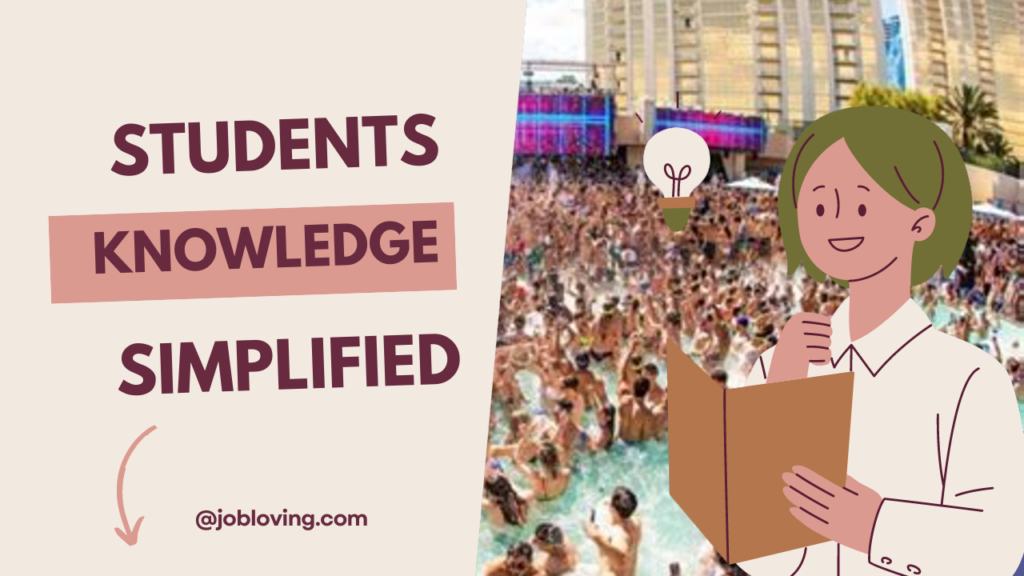Is Spring Break Good for College Students? A Comprehensive Look
Spring break—those precious days of freedom nestled in the middle of the academic year—aren’t just about sun-soaked beaches or adventures with friends. Instead, spring break serves as a vital pause that helps college students reset and recharge both academically and mentally. For many, it’s a time for escapades, while for others, it can mean a chance to catch up on schoolwork or take a breather from life’s relentless pressures. In this article, we’ll dive deeper into the myriad benefits that come with taking a break during the spring months.
The Mental Reset: A Chance to Decompress
College life can be overwhelming. Between juggling classes, assignments, social obligations, and sometimes part-time jobs, students’ mental health often teeters on the brink. That’s where spring break swoops in like a superhero, providing essential mental decompression. Research shows that a well-earned break in the middle of the semester can significantly reduce stress levels, allowing students to return rejuvenated and ready to tackle the remainder of the term with a fresh perspective.
Studies also affirm that the mental health benefits of taking time off extend beyond mere relaxation. Many students return to campus feeling mentally refreshed, increased creativity often follows a change of environment. After a week away from academic duties, students report feeling more motivated and engaged with their studies, ultimately enhancing academic performance.
Physical Well-being: Sunshine and Activity
Spring break isn’t only a mental palate cleanser; it can drastically improve physical health, too. Students often find themselves engaging in outdoor activities during this time—whether that’s relaxing on a warm beach, hiking through nature trails, or enjoying a spontaneous road trip. These physical experiences, often bathed in sunlight, provide students with vital Vitamin D, which is crucial for maintaining both mental health and physical vitality.
Beyond the sunshine, studies underscore physical activity as a key contributor to emotional well-being. Remember the lethargy that creeps in during the long winter months? Spring break allows students to combat those winter blues more effectively, boosting energy levels and invigorating spirits. Nothing quite lifts the mood like basking in sunlight and stretching one’s legs outdoors after a long, cozy winter indoors.
Exploration and Learning: Broader Horizons
For those adventurous spirits, spring break is an opportunity beyond relaxation—it’s a chance to experience new landscapes. Traveling exposes students to different cultures, cuisines, and ways of thinking, which can foster personal growth. Stepping outside familiar environments often refreshes minds and inspires creativity, and who wouldn’t want a bit of that?
Moreover, the informal learning that takes place during these trips is invaluable. The ability to connect leisurely with peers, make new friendships, or deepen existing bonds adds layers to the college experience that might otherwise remain untouched within the lecture halls.
The Balance of Fun and Responsibilities
While the allure of wild parties and sunny gets-away is hard to resist, spring break isn’t solely about spontaneous escapades. For many students, it provides a much-needed opportunity to balance relaxation with academic priorities. It’s perfectly okay—perhaps even essential—to devote part of this break to catching up on assignments or studying for exams that will greet you with a fierce “welcome back”.
Most universities schedule the break intentionally to allow students time away from classes while ensuring they don’t drown in mounting submissions. This balance is crucial in preparing students not just for the next round of academics but for life beyond college, where self-management skills will be paramount.
The Role of Social Connections and Emotional Resilience
As if the benefits of spring break weren’t bountiful enough, let’s not overlook the social aspect. Connecting with friends and strengthening social networks can significantly improve students’ well-being. Spending time with close friends or meeting new people fosters emotional resilience—a skill that will be valuable long after their college years.
Mental health professionals consistently advocate for time off as crucial for building emotional capacity and coping strategies. In today’s world, where stress levels are alarmingly high, consider spring break a strategic move toward enhancing students’ emotional agility. Strengthening these important relationships can lead to an increase in happiness and decrease anxiety when entering high-stress environments post-break.
The Evolving Structure of Spring Break: A Call for Change?
Believe it or not, not all colleges and universities maximize the potential of spring break. Some, like NYU, allocate just a single week for spring break. Many students feel that this doesn’t provide sufficient time to garner meaningful relaxation or reduce stress levels. Imagine returning from a brief respite only to find yourself tangled back in a whirlwind of deadlines and obligations. The pressure can feel overwhelming!
Experts argue that expanding spring break could mitigate the continuous pressure students face, reducing anxiety and promoting healthier study habits. A longer break could help students spread out tasks, allowing them to engage deeply in leisure activities without the shadow of academic burdens looming overhead.
Conclusion: More Than Just a Break
In light of all these revelations, spring break emerges as not merely a recess from academic commitments, but rather a pivotal period for overall health and well-being. From mental rejuvenation to physical revitalization, from bonding with friends to exploring new horizons, the benefits are both profound and multifaceted.
It’s critical that universities recognize the essential need for a robust spring break in their academic calendar. By providing students with the time they need to fully recharge, institutions can foster happier, healthier, and more productive learners. So, as spring approaches, here’s to enjoying the warmth, the laughter, and yes, the much-needed downtime that will fortify students to tackle the future with vigor and zest! 🌸

